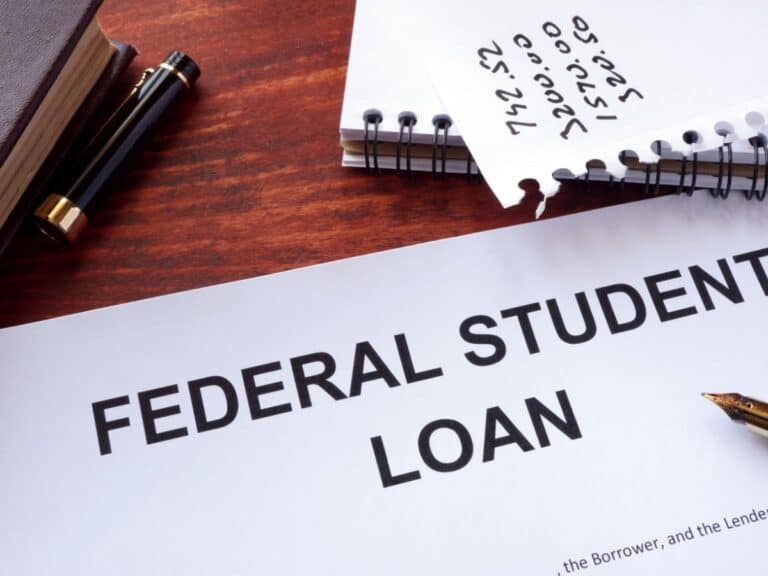Are Parents Responsible for Student Loans?
Student loans are the truly frightening products of a college education (along with knowledge and a degree), and they’re not just scary for the student. Sometimes, they’re even scary for parents. But really, if you’re a parent, there’s no reason to worry.
Generally, parents are not responsible for their child’s student loans. However, if a parent cosigns on a loan, they can be held responsible for it if the student can’t make their payments. However, parents are responsible for Parent PLUS loans, which are extensions of the FAFSA.
In this article, I’ll discuss the different types of student loans, and whether or not parents can be held responsible for them.

Federal Student Loans (FAFSA)
Federal Student Loans become available to students once they fill out the FAFSA (Free Application for Federal Student Aid). Additionally, the FAFSA makes it possible for students to receive grants and scholarships, which are loans that don’t need to be paid back.
Even though parents tend to help their children fill out the FAFSA, parents can not be held responsible for the student loans that the student incurs from the FAFSA. In fact, filling out the FAFSA doesn’t require the student to accept any of the federal loans offered to them.
The Higher Education Act (1965) says, among other things, that parents can’t be held responsible for their child’s student loans, even if they might’ve been underage when they filled out the FAFSA.
Because of all the information asked in the FAFSA about the parents, some parents think that they may be held responsible for their child’s student loans, or that those will somehow affect their credit, when in truth, neither can happen. The reason that that information is asked is to determine the child’s financial need.
For this type of student loan, it isn’t possible for parents to cosign. This means that it is impossible for parents to be held responsible for this type of federal student loan.
Additionally, filling out the FAFSA is a prerequisite to applying for a Federal Parent PLUS Loan, which we’ll discuss next.
Related Article: Does Financial Aid Cover All 4 Years?
Federal Parent PLUS Loans

A Federal Parent PLUS Loan has to be preceded by the student filling out a FAFSA.
Then, it becomes simple. The Parent PLUS Loan is a federal student loan that can be borrowed by a parent, with the intent to assist their child with tuition, room and board, and more. This loan is taken out by the parent, and the parent is responsible for it. There is no requirement to apply for this type of loan.
Many parents take out this loan with the intention of giving their children more financial aid and having them pay the loan. However, if payments are made late, this will not affect the student’s credit history, it will affect the parent’s credit history.
Taking out a loan automatically makes you responsible for it. If you’re the parent, it’s your loan, you need to pay it. If you’re the student, it’s the same deal: your loan, you pay.
For student loans, collateral is a bit different than for different types of loans, like car loans. If you can’t pay a car loan, the lender will take your car. With a student loan, the collateral is your earnings. So, if you’re a parent, taking out a student loan for your child, the collateral for that loan is your earnings, not your student’s.
Similar to a private student loan, the Parent PLUS loan is only eligible for a maximum amount of the cost of attendance at the student’s school, minus whatever other financial assistance received.
Related Article: How Is a Student Loan Different from a Scholarship?
Private Student Loans

It is also possible to get student loans that aren’t sponsored by the federal government. These are typically used only after a student maxes out on their federal student loans, and there are a lot of reasons for that. A lot of lenders of private student loans generally require a cosigner, which helps them to ensure that they’ll get their money back.
If one cosigns on a student loan, it is almost the same as borrowing a student loan for yourself. Cosigning on a student loan when you aren’t in a position to be able to pay it isn’t a good idea, because, at some point, you as a cosigner may need to step in.
So, when parents cosign on their child’s student loan, they are equally obligated to pay it and are held responsible for the loan if their child can’t make their payments for some reason.
Sometimes, a parent will borrow a private student loan for the student, because it’s easier to get the loan that way. If this is how a parent chooses to do it, they hold primary responsibility for the loan, not their student.
As a general rule, private student loans are more difficult to get out of, less flexible in repayment plans, and are harder to qualify for in the first place. This is why private student loans are generally only used after a student maxes out their federal financial aid.
Another reason to steer clear of private student loans is that you never know exactly what you’re going to get. When dealing with federal student loans, there are standard interest rates for each type of loan, and not only that but there are several different payment plans and methods to make it as easy as possible for the student to pay the loan back. However, with a private student loan, that isn’t the case.
Private student loans do not have a standard interest rate. This means that lenders of private student loans set the interest rate based on several different factors.
These factors include credit scores, incomes, and the credit history of the borrower. In most circumstances, the student that borrows the loan doesn’t have an extensive history of any of those, and they might not even have a credit score, income history, or credit history at all.
This is why most lenders require cosigners, and why having a cosigner is a good idea, even if the student does qualify for a private loan by themselves.
Read Also: Here’s What Happens If You Stop Paying Student Loan
Disclaimer: The views and opinions expressed in this article are those of the authors and do not necessarily represent those of the College Reality Check.




